
There were visitors and the operators kept on making contacts while explaining ham radio
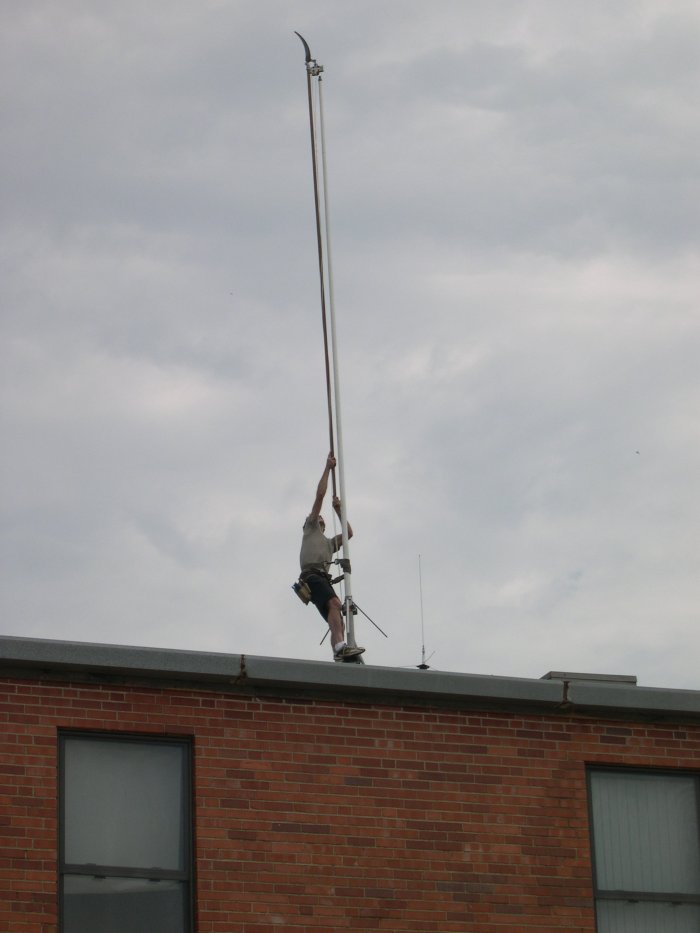

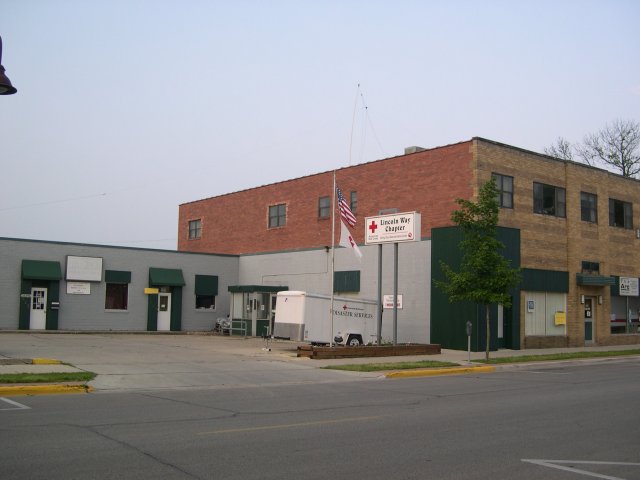
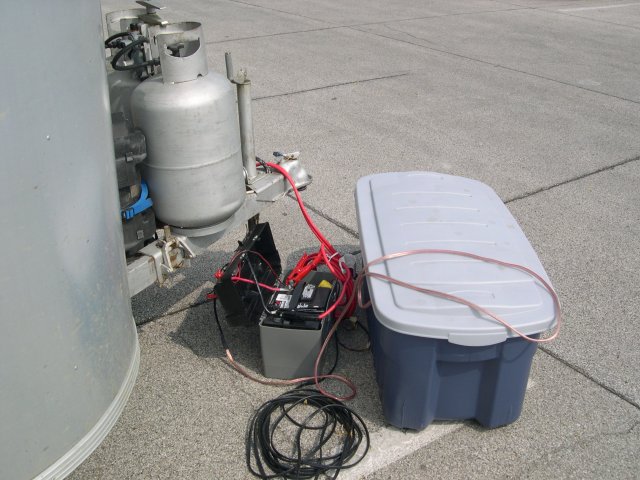

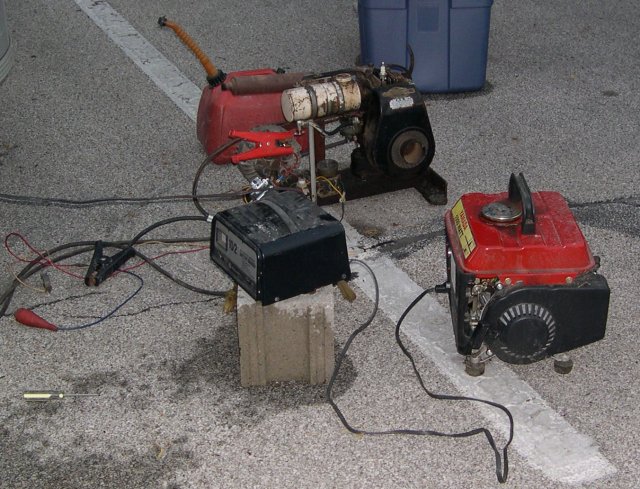
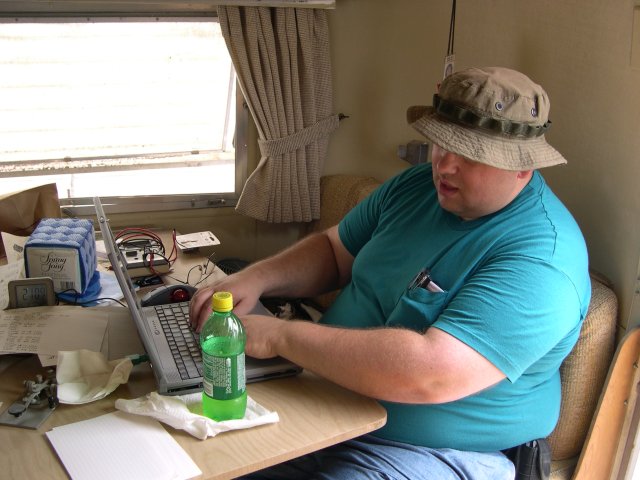
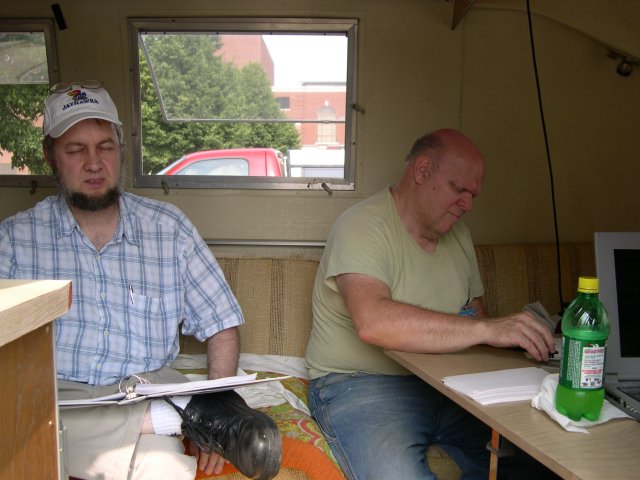
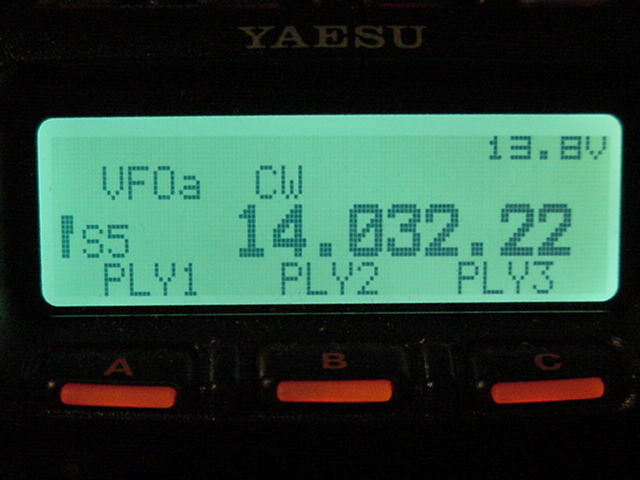
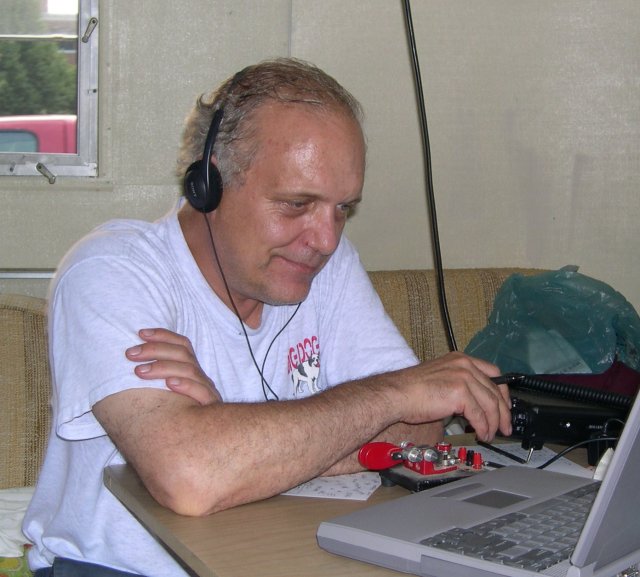
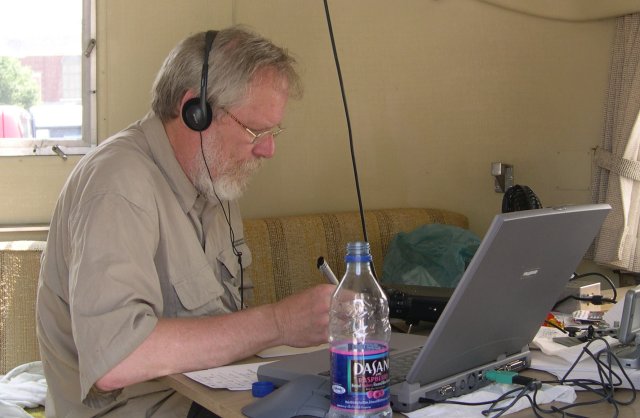
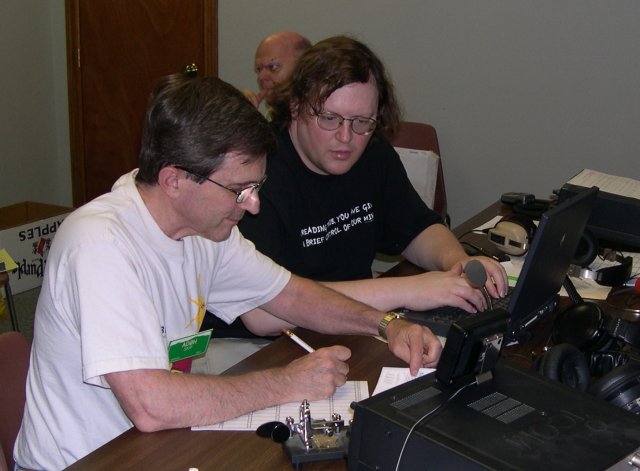

There
were visitors and the operators kept on making contacts while
explaining ham radio
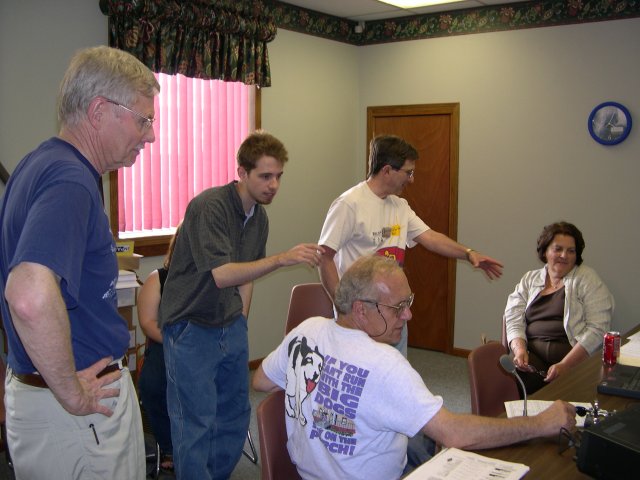
and
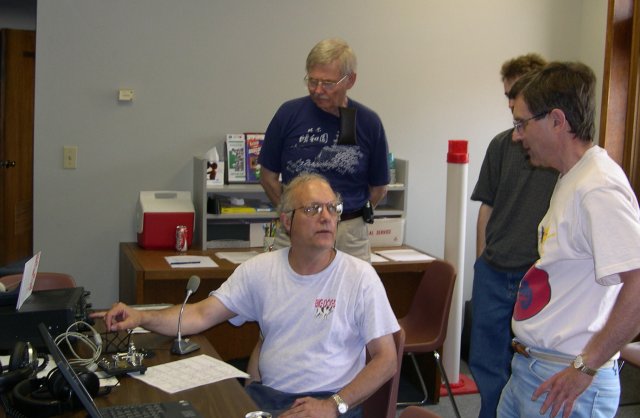
The
night shift included AC0BG on 75 meters
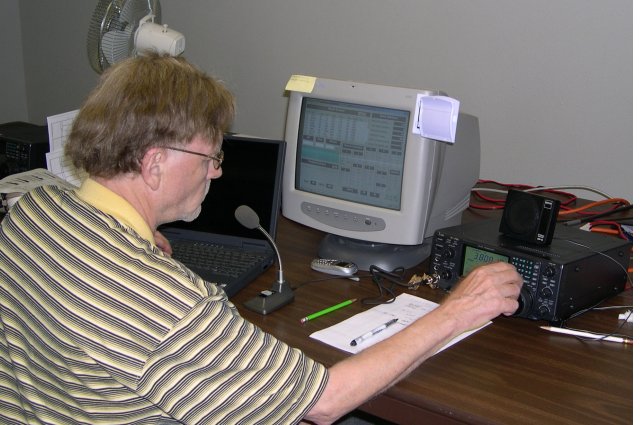
After
Dean gave up getting answers, K0CQ took over and found a different
microphone made a major difference (as did ignoring the alligatorish
class D stations at home running high power) on 75 meters.
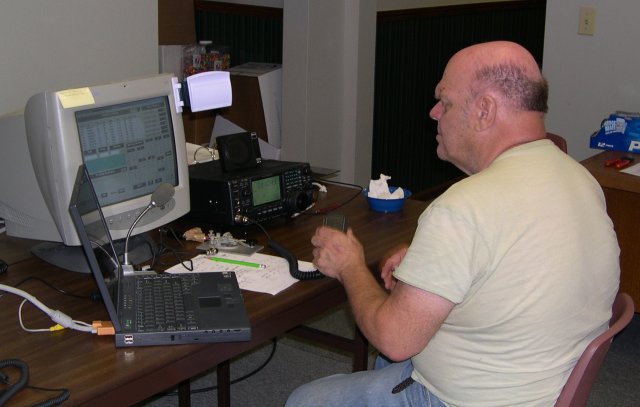
Note
the use of the separate monitor by early Sunday morning (my best
sleeping hours were spent on 75 and 80!) After
K0CQ went to sleep, KI0Q continued on 40.
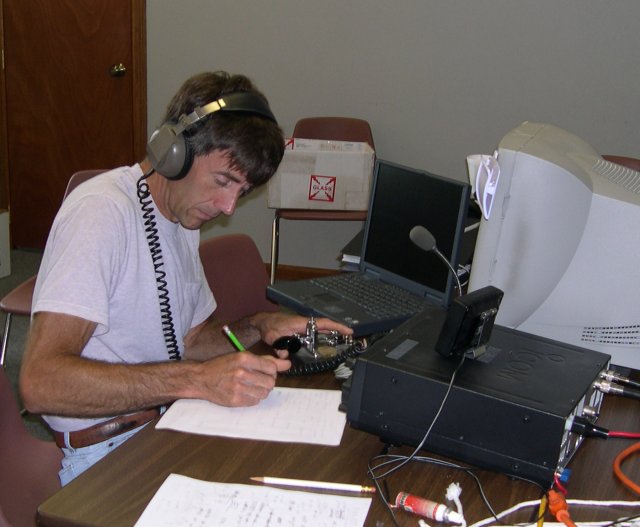
During the Sunday morning operation the Red Cross generator was tested to meet
the emergency power rules for class F.
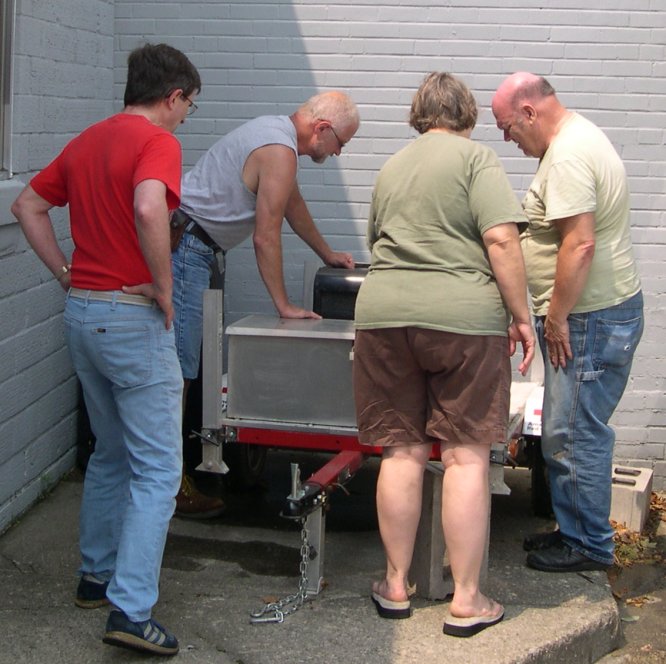
And it showed up full voltage judging by the lamps brightness.
See
the FD summary for results. All told the 80/40 station made a few
more contacts than the 20/15 station, but there were more contacts
made on 20 than on 40. CW was most productive.
Photos by K0YLO and AD0H except for the FT-857D screen that was taken by K0CQ.
The Student Daily
interviews resulted in this front page article: isudaily.html
Modified July 8, 2005 by K0CQ
![]()